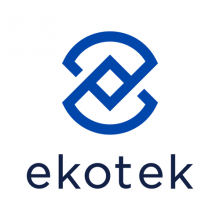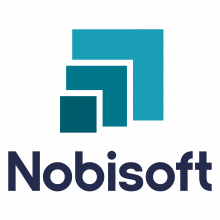
There are 96 Companies in Vietnam
that provide NodeJS Development Services!
As Vietnam moves from low-tech manufacturing to a service-oriented economy. The country’s information technology (IT) market is increasingly gaining traction, giving competition to IT firms in China and India. This has partly been encouraged by the growth of Vietnam as a regional market for domestic enterprises and global technology vendors.
Discover Top IT Companies in Vietnam specialized in NodeJS and other related services. Find the best IT service providers for your projects.
Node Js is a JavaScript runtime environment that allows developers to run JavaScript code on the server-side. Unlike traditional server-side technologies like PHP or Ruby, which are typically used for handling server tasks, Node.js enables developers to use JavaScript for both client-side and server-side development.
Handpicked companies • No obligation to hire • 100% risk-free
Featured Companies in Vietnam
This month, the following NodeJS Development companies managed to provide an outstanding service and support. It's worth taking a look.

Ho Chi Minh City, Vietnam Head office in: United States
SDLC Corp is a global IT solutions provider offering custom software, apps, blockchain, AI, Odoo, Salesforce, and game development services.
✨ Among Vietnam's top 1️⃣0️⃣ software companies, we offer professional, cost-effective solutions for your projects ✨

Kyanon Digital Verified Company
Ho Chi Minh City, Vietnam Head office in: Vietnam
Making Digital Impact that Matters
Explore Top NodeJS Development Companies in Vietnam
High Quality Software Company in Vietnam

Fire Bee Techno Services Verified Company
Ho Chi Minh City, Vietnam Head office in: India
Fire Bee Techno Services is an ISO-Certified Blockchain and AI Development Company In india and across the world with 13+ years of experience.

Golden Owl Solutions Verified Company
Ho Chi Minh City, Vietnam Head office in: Vietnam
Golden Owl Consulting is one of the most prominent agile software outsourcing firms

Ho Chi Minh City, Vietnam Head office in: Poland
On time and budget since 1997. We have over 700 tech enthusiasts collaborating under the shared metaphorical roof of our offices worldwide.
Savvycom (founded 2009) is a leading Vietnamese software development company with 100+ enterprise clients, 200+ projects from over 30 countries.
TechHub Asia is a Vietnamese entity that supplies technological outsourcing services, connecting international clients with local service providers.
Building better brands in Vietnam and abroad since 2017.
Services:
Global trusted technology partner for business’s digital success.
Vietnam Reliable Web & Mobile Application Development Company
Your Vietnamese IT outsourcing gateway, the Western way
Kaopiz is a premier IT outsourcing and software development services company located in Vietnam and Japan.
Bestarion is a highly awarded outsourcing company helping businesses optimize costs, time, and efforts by outsourcing ITO and BPO services to Vietnam.
NKKTech Global provides AI-first offshore software development, delivering high-quality, scalable solutions for global businesses.
NAPA Global is one of the most trusted software development companies, founded in 2018 in Vietnam - emerging tech hub in Southeast Asia.
Trusted Software Partner For Global Businesses
Nobisoft - A trusted Vietnam-based software development company supporting SMEs and high-growth startups
Services:
HBLAB JSC is a Vietnam-based SDaaS & IT consulting company, delivering tech solutions to clients across various industries since 2015.
Services:
CodLUCK offers a wide range of services using next-gen technology such as AI/ML, blockchain, low-code, etc. to help businesses in the digital age
Filter NodeJS Development Companies in Vietnam by Cities
Find the right tech company near you or from a specific city. Some of the best companies might be located in smaller cities.
Find more NodeJS Development companies around the world
TechBehemoths is the world's most advanced and user-friendly platform to match IT Companies with real clients without hustle.
The ICT Industry in Vietnam: Market Overview and Trends
As Vietnam moves from low-tech manufacturing to a service-oriented economy, the country’s information technology (IT) market is increasingly gaining traction, giving competition to IT firms in China and India. This has partly been encouraged by the growth of Vietnam as a regional market for domestic enterprises and global technology vendors.
Why You Should Work With Vietnamese IT Companies
Local software producers mostly provide their products to the government and small and medium-sized enterprises, while larger Vietnamese companies generally look to multinationals for software. As internet infrastructure starts to improve, more demand for areas such as software as a service (or, on-demand software) and other cloud-computing services should pick up.
What You Should Pay Attention to When Working With Vietnamese IT Companies
The underdeveloped IT sector and infrastructure, as well as a relatively low level of education in IT, make Vietnamese companies less attractive to foreign customers. Additionally, IT companies and web agencies from Vietnam face systemic problems with cybersecurity, piracy rate, and efficient communication, among others.
Cybersecurity is a particular vulnerability for Vietnam, and one of the most notable cases happened in 2016, when an alleged Chinese hacker group, 137CN, carried out some cyberattacks on Vietnam’s airports as well as the official website of the national flag carrier Vietnam Airlines, in which the airline’s customer database was stolen and made public on the internet.
In 2019, there were a total of 31,500 security incidents in the country, according to the Vietnam Computer Emergency Response Team. In the first half of 2020 alone, the number of incidents was 4.4 times higher compared with a year earlier. In 2025, the cyberattacks continued with 179 more attacks, mostly attributed to the group Anonymus VNLBN.
How Reliable Are Vietnam-based IT Companies
Under the strongly growing digital economy, major opportunities are opening for investors, especially those who want to provide products and services based on new technologies. Combining this and the cheap market price, investors rely on Vietnamese IT companies to provide the needed digital services.
But the situation is different in the regional market, where potential clients have a wide range of countries and companies to choose from for their web or software projects.
Why Outsource Software/Web Development to Vietnam?
Vietnam is an appealing destination for outsourcing software and web development due to the various perks it provides. It has a fast-growing tech sector with more than 1.2 million workers in over 74,000 IT companies. It is cost-effective to outsource web and software development in Vietnam, with hourly prices of $20-$45, compared to the US costs $65-$130. The country’s rich talent pool has over 560,000 new employees in 2024-2025, and between 50,000-60,000 students who choose to learn computer science or other IT domains. Additional benefits include a stable government and a favorable investment ecosystem.
How Does the Vietnamese IT Industry Relate to the Neighboring Countries
IT Outsourcing services generate around $777.36 million by 2025, Statista reports. However, Vietnam is still a boutique market when it comes to outsourcing and lags behind its regional peers, such as India and the Philippines, which earned $12.41 billion and almost $800 million, respectively, from providing IT services the same year.
What is NodeJS and what are its benefits for your projects?
Node Js is a JavaScript runtime environment that allows developers to run JavaScript code on the server-side. Unlike traditional server-side technologies like PHP or Ruby, which are typically used for handling server tasks, Node.js enables developers to use JavaScript for both client-side and server-side development. Below we’ll dive deeper into the types of projects built with it, and how companies can leverage it for their projects:
Node.js is built on the V8 JavaScript engine from Google, making it incredibly fast and efficient. It uses an event-driven, non-blocking I/O model, which makes it ideal for building scalable and real-time applications. Node.js is particularly well-suited for projects that require high concurrency, such as web applications, APIs, chat applications, streaming services, and more. It has a large and active community, which has led to a rich ecosystem of libraries and packages available via npm (Node Package Manager), simplifying development tasks.
As for the type of projects that can be built using Node.js, we can name the following:
- Web Applications: Many web applications are built using Node.js, often using web frameworks like Express.js. These applications can range from small personal websites to large-scale, enterprise-level platforms.
- APIs (Application Programming Interfaces): Node.js is commonly used to create RESTful APIs that allow different services or applications to communicate with each other. This is essential for building services that provide data to mobile apps, websites, and other clients.
- Real-time Applications: Node.js is favored for real-time applications, such as chat applications, online gaming, and collaborative tools. The event-driven architecture of Node.js is well-suited for handling multiple concurrent connections.
- Streaming Services: Media streaming platforms and services that deliver audio and video content use Node.js to efficiently manage and serve media files to users.
- IoT (Internet of Things): Node.js is used in IoT projects to handle data collection from sensors and devices, process that data, and communicate with cloud services.
- Serverless Functions: Node.js is a popular choice for building serverless functions or AWS Lambda functions due to its lightweight and quick startup times.
Node.js is a versatile technology that can be effectively utilized in both smaller and larger projects, but its suitability hinges on several key factors.
For smaller projects, Node.js offers distinct advantages. Its event-driven, non-blocking I/O model allows developers to rapidly prototype and develop applications. This makes it an excellent choice for creating functional prototypes, minimum viable products (MVPs), or simple web tools swiftly.
Node.js's efficiency in handling I/O operations can lead to responsive user experiences, which is valuable for small-scale applications like personal websites, blogs, or straightforward web tools. Moreover, Node.js itself is lightweight, making it suitable for projects with minimal hardware or resource requirements. It doesn't impose significant overhead, making it a cost-effective option.
Node.js is also well-suited for serving as a backend for Single-Page Applications (SPAs), handling API requests, and serving static files efficiently. Its ability to use JavaScript both on the server and client sides can reduce development costs by enabling code reuse and a single development skill set.
For larger projects, Node.js remains a compelling choice for various reasons. Its ability to handle a large number of concurrent connections positions it favorably for projects with high traffic and user loads. It's designed to scale efficiently, allowing it to distribute workloads across multiple servers or containers, making it scalable and robust.
In larger applications with complex functionality, Node.js can be employed to build microservices that communicate efficiently with each other. This modular approach enhances maintainability and facilitates development on a larger scale.
Node.js's event-driven nature also makes it an ideal candidate for larger projects requiring real-time features. It excels in managing multiple simultaneous connections, making it suitable for applications such as messaging platforms, online gaming, or collaborative tools.
Additionally, Node.js continues to offer development speed advantages regardless of project size, which can be particularly valuable in meeting tight project deadlines.
Furthermore, for larger projects with JavaScript as the primary language on both the frontend and backend, Node.js facilitates streamlined development processes, code sharing, and collaboration among teams working on different parts of the application.


















